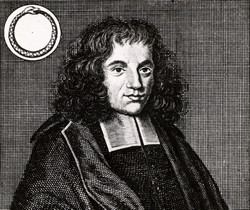The contribution of Dutch philosophy to the Enlightenment
In the Low Countries, the vernacular was increasingly accepted for producing and transmitting knowledge. The late mediaeval and early modern periods saw a wide range of vernacular authors working to disseminate, to a growing audience of mainly urban laymen, ideas on reason and to cultivate a rational attitude toward life. The project SPARKS OF REASON (Sparks of reason. Urban culture, vernacular rationalism and new perspectives on the Enlightenment) considered the influence of Dutch philosophy on present-day society. In particular, the focus lay on Vernacular Rationalism – a specific tradition of 16th-century urban lay philosophy in the Low Countries that blended classical philosophy, humanism, spiritualism and popular piety. Researchers considered two main perspectives: the Dutch Golden Age, and the trajectories along which this 16th century Vernacular Rationalism in the Low Countries could develop. Project research shows that Vernacular Rationalism was rooted in an age-old Netherlandish tradition and effectively became a breeding ground for the Early Enlightenment in the 17th century Dutch Republic. Work covered the history of philosophical writing in the vernacular and took into account the emphasis on reason as a means to control personal and societal passions. As such, researchers were able to highlight the impact, role and function of lay philosophy in intellectual, scientific and cultural developments in the Low Countries. The research provides new insight into European intellectual history in general and the history of the Enlightenment. Moreover, project findings make way for a new approach to the Enlightenment as a historiographic notion as it can now also be viewed as an expression of and response to (early) modern urban culture. Efforts by the SPARKS OF REASON team expanded the related international academic network, led to the creation of a research group on 'Radicalism, Spiritualism, and Anabaptism in the Netherlands (1500-1700)', and supported involvement in the founding of the journal 'Persecution, Tolerance, and Coexistence'. Other project work included seminars, workshops, paper presentations at conferences as well as the publication of two books and four articles. Overall, the work contributes new information and factors to consider in studies of the rise and significance of the European Enlightenment as well as its wider influence on European identity and culture.







